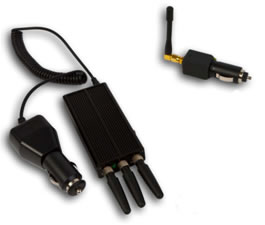- Home
- ›
- GPS Jamming Detection
- ›
- GNSS Jamming – The Threat Explained
GPS JAMMING DETECTION
What is GNSS | GPS Jamming? The Threat Explained
GNSS, the Global Navigation Satellite System (GPS, GLONASS, Galileo and BeiDou) signals are used by many critical infrastructure organisations for positioning, navigation and timing applications including defence, policing, security, transport and marine. The GPS signal is susceptible to outages due to intentional and unintentional jamming. Intentional jamming is on the increase and is now recognised as a clear and present threat following results of a research project by the SENTINEL research collaboration which included partners from Law Enforcement Agencies.
GNSS jammers are widely available as can be evidenced by a quick web search. Research by the SENTINEL project has identified over 60 (non-UK) web sites actively promoting and selling jammers; some as low as £30 including free shipping. There are many different types available, ranging from a variety of small low cost portable and in-car devices to major military application devices.

The low cost jammers can be either vehicle mounted via the auxiliary power socket, or powered with a rechargeable battery. Quite often they don’t just jam the GNSS signal alone. As can be seen they have multiple antennas they will also jam the GSM mobile phone signals and even the latest 4G frequencies, using different antennas for the different bands to be jammed.
Who Uses GNSS Jammers?
GNSS jammers are actively used by criminals and for personal privacy. Criminals may want to disable the GNSS based tracking technology to steal a car or a high value asset. Lorry hijacking is now undertaken with GNSS jammers to ensure that the fleet tracker personnel cannot see the targeted vehicle. Some serious crime gangs may use GNSS jammers to disable covert tracking technology.
Personal privacy is another popular application for GNSS jammer technology. Fleet van drivers may not wish their management to know where they are if they want to undertake non-work related activity during working hours, e.g. the school run or private work. New applications for GPS technology are emerging such as young driver insurance. A GNSS jammer would disable the “black box” technology and enable the young driver to (maybe) go to the pub. Offender tagging use GPS technology to ensure that the tagged person remains in his home during certain hours. GNSS jamming technology would disable the offender tracking bracelet.
Jammers work by flooding the front end of the SatNav receiver or GNSS based tracking device with too much power. The native GNSS signal when broadcast from the satellite is equivalent to a 20 Watt light bulb 12,000 miles away. It does not take much power on the ground to completely disable the SatNav technology. The Chronos GNSS Jamming detection technology senses this additional power and can discriminate against false alarms from local multipath or interference and determine multiple jamming event patterns over long periods and its precise location in order to provide actionable intelligence to law enforcement and critical infrastructure protection organisations.
